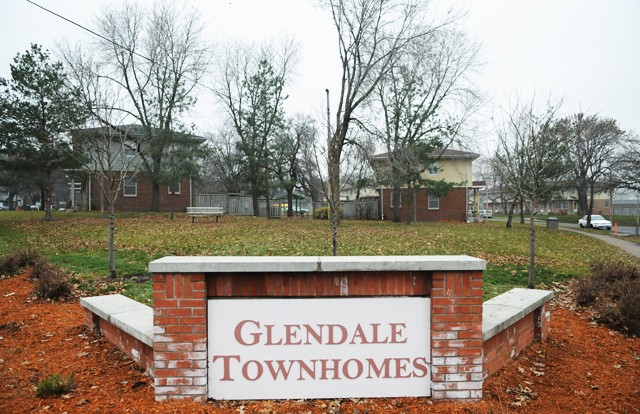Minneapolis officials aim to give renters the first chance to purchase their home when the property owner puts it up for sale, but some advocates worry that public housing residents will be left out.
The Tenant Opportunity to Purchase Act (TOPA) is a proposed ordinance that would give a tenant first dibs on their building when the landlord decides to sell. Local lawmakers are modeling TOPA after a Washington, D.C. policy that has been in place since 1980, which some residents have used to band together and buy the buildings they live in.
“[TOPA is] problematic in that it feels like the right to purchase only matters if it’s not people who live in public housing,” said Kaaha Kaahiye, a public housing activist and Prospect Park Association staff member.
TOPA at the city
University of Minnesota-area Minneapolis City Council members Cam Gordon and Steve Fletcher, of Wards 2 and 3, are working on the proposal alongside two other Council members and the Housing Justice League, a coalition of seven neighborhood organizations and housing advocacy groups.
“TOPA on its own is not going to solve the housing crisis that Minneapolis is experiencing pre- and during the pandemic,” said Grace Berke, Powderhorn Park Neighborhood Association staff member. “But it’s important that we continue to pursue every tool that we can to begin to really make some of those changes.”
Gordon said the Council members are drafting the ordinance and hope to have it ready for a public hearing and vote by late spring or early summer.
There are three options for how the policy could look in Minneapolis. The first option gives tenants the right to purchase their building or assign that right to any other buyer.
The second option is the same, but if tenants choose to assign their right to another buyer, it must be an approved developer on a shortlist prepared by the city. The third option does not let tenants purchase the building; instead, the right goes directly to the list of approved developers.
“The first option, I would say, is the one that maximizes the rights for tenants,” Berke said.
Residents could form a tenant association or partner with a nonprofit organization or developer to purchase the building, Berke said. She added that the Housing Justice League is looking into ways to support tenants so they can organize within the city’s deadlines.
From D.C. to Glendale
The city is modeling this proposal off of Washington, D.C.’s TOPA, and in creating the policy, public housing advocates worry that Minneapolis will adopt D.C.’s shortcomings as well.
“It’s also that this TOPA that is being discussed at the [Minneapolis] city level is going to be based off of TOPA that’s happening in D.C.,” Kaahiye said. “And currently, we see there are public housing residents who are unable to purchase their homes because of the same things we are dealing with in Minneapolis.”
In Washington, the tenants’ rights nonprofit organization Can I Live is also campaigning to allow public housing residents the first chance to purchase. In Minneapolis, advocates fear that public housing residents will not be able to buy their homes if the Minneapolis Public Housing Authority (MPHA) privatizes their buildings.
Gordon said while there should be opportunities to purchase public housing that is up for sale, he wants to keep public housing public and maintain deeply affordable housing.
“[TOPA] could be really powerful … as a wealth-building opportunity,” Gordon said. “But it also might not be what we want to have happen if we have waiting lists of people still wanting more rental public housing and subsidized [housing].”
Ladan Yusuf, Defend Glendale and Public Housing Coalition campaign organizer, said the policy draft should also include financial support for public housing and Section 8 residents to purchase their home if it goes up for sale.
“[If MPHA] doesn’t give people the option to buy the homes, if [MPHA] makes things difficult, then what are the consequences?” Yusuf asked. “Can [residents] take them to court? Can they file a complaint? Will the city protect these residents if MPHA tries to block them from buying the homes?”
Kaahiye said she knows many public housing residents interested in buying their homes, and she believes this could help lift communities out of poverty.
“We can build community wealth, like be able to have financial stability and homeownership as a tool out of poverty,” Kaahiye said, “especially if it’s public housing residents.”














